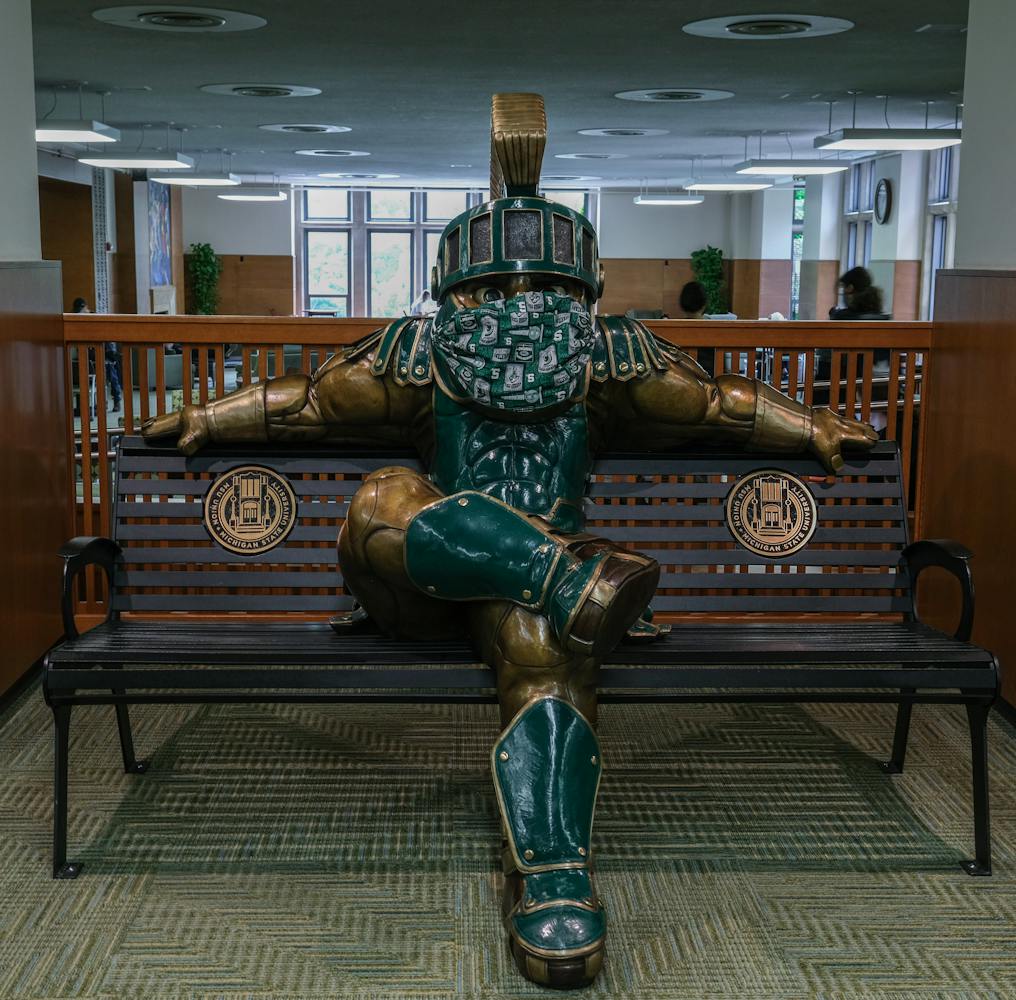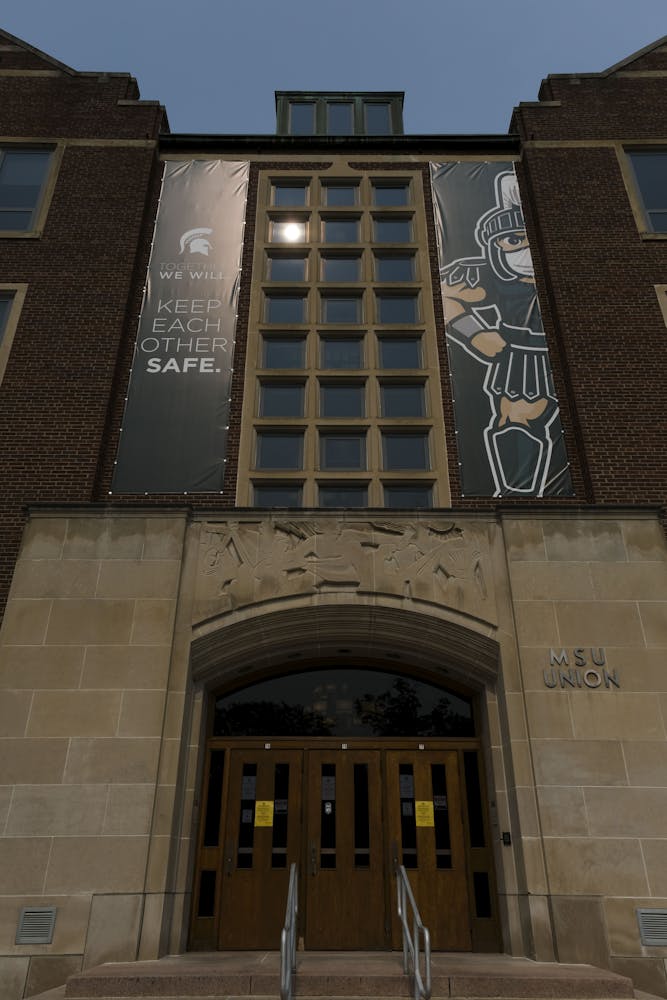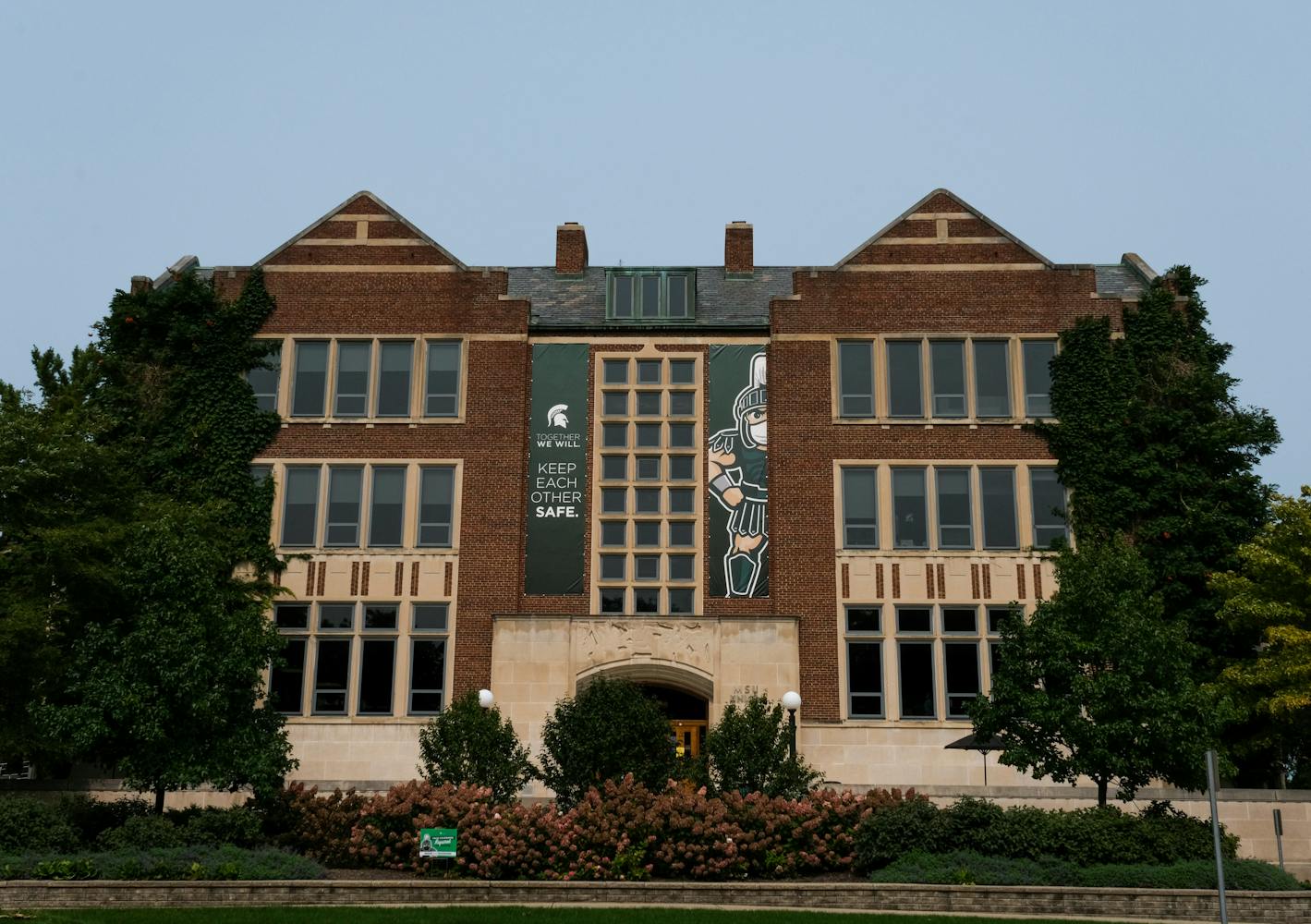Michigan State University President Samuel L. Stanley Jr. provided the community with an update on the school's COVID-19 financial situation.
The fiscal year began on July 1, and Stanley noted that student enrollment, which was finalized last week, is a big contribution to this year's finances.
This fall there are 49,695 students enrolled at MSU, down 866 students from last fall.
The decline in enrollment attributed to a $54 million decline from last year’s revenue, Stanley said. The current tuition revenue reflects decline in enrollments and change in the type of students. This year there are fewer international and out-of-state students.
Stanley also added that a smaller class will have at least a four-year impact on the university's budget as that class moves through each year toward graduation.
First-year student enrollment this fall is at 8,228, down 335 students from last year.
MSU's state appropriations were finalized through Michigan's state budget in September and are remaining the same as last year.
Although the state funding and enrollment is better than the university was expecting, it is still below levels of a typical year and will have to be made up for.
In early summer the university began implementing cost-cutting measures such as pausing capital projects, cutting MSU executive salaries, reducing unit spending by 3%, 800 union and 700 student employee furloughs, non-union faculty and academic staff wage reductions, reducing the employer-match in retirement contributions and reducing university-related travel, contractors and vendors.
On top of those measures, MSU is utilizing some of their operating reserves to fill remaining budget holes, Stanley said.
"Reserves are intended to be leveraged in extraordinary situations, and we clearly see this global pandemic as an appropriate time to tap reserves, but this is not an unlimited source," Stanley said in an email. "We also have a duty to financial stewardship, so we continue to balance our need to directly cut costs with our ability to utilize a portion of our 'savings.'"
Stanley said the university’s endowments are not available for uses beyond their established purposes.
MSU is also implementing previously negotiated raises for unionized employees to honor previous commitments, as well covering inflationary increases in spending on essential items such as health care, utilities and maintaining a safe physical infrastructure.
He also noted that although athletics and Residential and Hospitality Services have both incurred significant losses, they are self-sustaining and do not affect the university's general budget.
"Both organizations are undertaking measures this year to remain self-sustaining, which has required a number of cost reductions including pay reductions and furloughs," Stanley said.
Stanley will be meeting with the Board of Trustees in the coming weeks to discuss finances going forward. He will share more information and updates when additional decisions have been made.
"In the meantime, MSU will continue to deliver on its core mission as an inclusive community with strong academic disciplines and a liberal arts foundation," Stanley said. "Despite our challenges, we will continue providing a world-class education, conducting high-caliber research and advancing outreach and engagement locally and globally."
Support student media!
Please consider donating to The State News and help fund the future of journalism.
Discussion
Share and discuss “ Stanley provides update on MSU finances following state appropriations, fall enrollment ” on social media.










